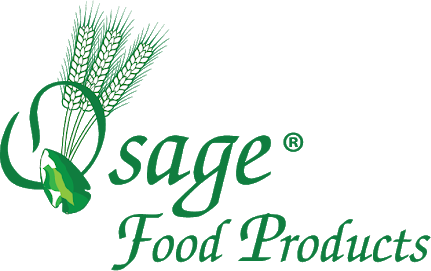Public consciousness of manufacturing’s impact on the environment has been growing steadily over the last several decades. We recently reached the point where consumers base many of their buying decisions on a company’s approach to responsible practices that promote environmental sustainability.
Food production is no exception. Although the U.S. dairy industry makes a relatively low environmental impact – contributing only 2% of all U.S. greenhouse gas emissions according to a 2007 study – it has been exceptionally diligent in adopting tech-based innovations that reduce our environmental footprint.
Osage Food Products is fully on board with supporting initiatives that recognize and act upon our collective responsibility to develop green-friendly innovations that reduce our environmental impact.
One such progressive push for environmental sustainability is the Net Zero Initiative (NZI), announced in October 2020. Its ambitious goal is for all stakeholders across the dairy supply chain to be carbon neutral or better by 2050.
What is the Net Zero Initiative?
NZI is the brainchild of The Innovation Center for U.S. Dairy. This organization, whose membership brings together stakeholders from across the dairy industry, such as farmers, cooperatives, processors, retailers, and others, was founded to promote American dairy interests both domestically and worldwide. It has been at the forefront of many successful efforts to help the dairy community identify, manage, and solve its most pressing social, environmental and economic impacts.
With its NZI in place, The Innovation Center focuses on integrating current science, technology, and innovation to dairy farms to help them reach their 2050 objective and solve the dairy industry’s sustainability challenges. Making the appropriate technology more accessible to farms, regardless of size or location, will help make the transition to technology adoption smoother.
Education will also play a vital role in moving the initiative forward. Openly communicating the benefits of the NZI will help convert those who are change resistant into enthusiastic supporters.
The NZI will focus on four key areas to help fulfill its mandate: feed production, manure handling and nutrient management, cow care and efficiency, and on-farm energy efficiency and adoption of renewable energy. The Innovation Center firmly believes that transforming these areas is crucial to reaching its 2050 goal.
For example, under NZI guidelines optimizing farm water use will reduce our industry’s environmental impact. This means empowering dairy farmers with the tools and guidance to make better water management decisions, such as recycling each gallon of water as many times as appropriate for their particular operations.
Another goal under the NZI is to optimize manure and nutrients usage to improve water quality in livestock production systems. This will require highlighting the interconnectivity of manure and nutrient management, soil health, and water quality to reduce on-farm greenhouse gas emissions, improve soil fertility, and enhance food security.
As we move toward the 2050 finish line, the U.S. Dairy Stewardship Commitment, which was developed by the Innovation Center in 2018, will help the effort by identifying additional metrics that will help fulfill the NZI’s mission.
Osage Food Products is proud to support the NZI mandate by offering dairy and whey proteins and cheese products using ingredients from sources that are as committed to environmental sustainability practices as we are. As our industry’s approach to sustainability continues to evolve, we’ll ensure to maintain our high level of product quality for all of our dairy and whey-based products.
Environmental Sustainability In Protein Products
Consumers have long considered supplements made from protein-rich food such as milk or soy as ideal ways to boost their protein intake. Two popular forms of these protein supplements are powders and bars, both of which are commonly made from whey protein.
Whey is a highly valuable by-product of dairy industries such as cheesemaking, putting the protein industry directly under the NZI mandate. However, whey already qualifies as a sustainable product due to its status as a by-product that could otherwise go to waste.
This means whey protein by itself has a carbon footprint of nearly zero in terms of lifecycle assessment. What tiny carbon footprint it does have results from processing, packaging, and transporting the products. In fact, by adding protein powder to your food products, you’re doing the planet a lot of good by reducing waste, as well as bolstering the nutritional value of your goods.
If you have any questions about how to enhance your food and nutritional products with a diverse selection of the best quality protein on the market, get in touch with Osage Food Products today. We’d be happy to send you a free sample to inspect so you can experience Osage quality for yourself.




